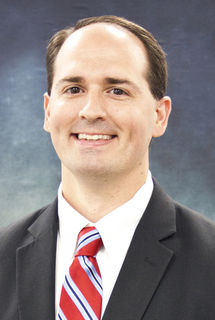Kelly M. Austin, chancellor of Penn State Schuylkill, had the opportunity to address the University's Board of Trustees as part of the board's regular summer meeting on July 11. Austin shared interesting and pertinent facts about the campus' history, and how it has evolved over the past 80 years.
Penn State Schuylkill is one of the oldest Penn State campuses, established in 1934 in Pottsville as the Schuylkill Undergraduate Center with 22 registered students. As enrollments increased, the center quickly outgrew its location. The Schuylkill Education Foundation, which now is known as the Schuylkill Campus Advisory Board, purchased a tract of land from the county for $1 in Schuylkill Haven. The purchase price included several buildings that were used as the county almshouse. After extensive renovations, the Schuylkill Campus was opened at its current location in 1967, with an enrollment of 468.
The campus offers five baccalaureate degrees, four associate degrees and the first two years of study in any of the 160-plus degrees offered at Penn State. There is on-campus, all-apartment style housing including the newest addition, Nittany V, which has earned a "Silver" LEED (Leadership in Energy and Environmental Design) Certification.
Enrollment at Schuylkill is just less than 1,000, and it is one of the most diverse Penn State campuses with 35 percent of students coming from racially diverse backgrounds. The international student population includes representation from China, India, Qatar, Korea and Turkey. Although Schuylkill has the smallest service area in the Penn State system, 58 percent of the students are from the local area, with 26 percent being adult learners.
"Understanding the challenges associated with shifting demographics, our commitment to increasing our enrollment within our local service area is as strong as ever," said Austin.
Austin explained that part of that commitment is assisting students with the necessary resources. Last year more than $600,000 was awarded in scholarships to deserving students. Part of the funding for these scholarships came from a very successful fundraising campaign. Penn State Schuylkill raised nearly $4.8 million in the For the Future: The Campaign for Penn State Students effort, with the final total at 119 percent of the campus' $4 million goal.
The student-to-faculty ratio is 14 to 1 and allows for personal interaction, including research and field study opportunities. The chancellor shared that Penn State Schuylkill was recently awarded a Reinvention Fund grant from the Penn State Sustainability Institute. This project, known as Envision, Plan, Implement, Change, Sustain (EPICS), will allow the entire campus to become a "living laboratory for sustainability." In addition, local community partners and representatives from other Penn State campuses will have opportunities for involvement.
The campus' services, students and faculty all are valuable resources to the local community. There is a diverse offering of free cultural programming. Many of the faculty work on projects with local school districts or community organizations, and the students perform tens of thousands of hours of community service. From raising more than $56,000 this past year for THON, to cleaning up local trails and working at the animal shelter, the campus has earned a place on the 2013 President's Higher Education Community Service Honor Roll by the Corporation for National and Community Service.
Economic development is a collaborative effort and Penn State Schuylkill plays a vital role. Delivery of credit and non-credit programming to local businesses and organizations, as well preparing graduates for in-demand occupations are just some of the ways that the campus contributes to a better community.
"We will continue to achieve success as we partner with the community, as our success is directly relational to the success of the community in which we live and operate," said Austin. "We look forward to the next 80 years and beyond, working side-by-side with the community. From our humble roots in 1934 with just 22 students, to the nearly 1,000 students we educate annually today, what started as a vision for better opportunities for the people of Schuylkill County, has grown into a community jewel that has an approximate $70 million economic impact on the region."
